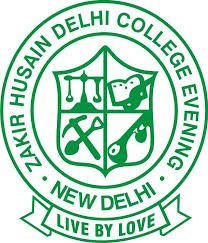College Description
Zakir Husain Delhi College (Evening) is a constituent college of the University of Delhi, established in 1973 to provide higher education opportunities to working individuals, especially those who prefer to study in the evening. It is a part of the Zakir Husain Delhi College but operates as a separate entity with evening classes, catering to students who need flexibility due to professional or personal commitments. The college offers undergraduate courses in streams such as Arts, Commerce, and Science, including B.A. (Hons) in various subjects, B.Com. (Hons), and B.Sc. (General) among others. The college maintains a vibrant campus with modern facilities, including well-equipped classrooms, a library, and sports amenities. Known for its inclusive and diverse student community, Zakir Husain Delhi College (Evening) emphasizes providing quality education while also encouraging students' participation in extracurricular activities, fostering a well-rounded learning experience.
Courses & Fees
Admission
College Admission – Zakir Husain Delhi College, DU
1. Eligibility Criteria
-
Undergraduate Courses:
-
Candidates must have completed Class 12 from a recognized board.
-
Specific courses may require you to have studied certain subjects in Class 12 (e.g., mathematics for B.Com or economics).
-
Minimum percentage requirements vary depending on the course and the category (General, SC/ST, OBC, EWS, etc.).
-
-
Postgraduate Courses:
-
For PG courses (M.A., M.Sc., M.Com), candidates should have a relevant undergraduate degree from a recognized university.
-
Some programs may require you to appear for an entrance exam (DUET) or admission may be based on previous academic performance.
-
2. Undergraduate Admission Process
-
The admission process for most undergraduate courses is through the Common University Entrance Test (CUET) conducted by the University of Delhi.
-
After the CUET results are declared, candidates can apply through the Common Seat Allocation System (CSAS) on the Delhi University portal.
-
Candidates will be allotted seats based on their CUET scores, preferences, and category.
3. Postgraduate Admission Process
-
For PG courses, admission is based on either the DUET (Delhi University Entrance Test) or marks obtained in the qualifying undergraduate degree.
-
Some courses may require an interview or group discussion as part of the selection process.
-
For DUET, candidates can check the specific exam details, syllabus, and registration process on the Delhi University website.
4. Documents Required
-
Class 12 Marksheets (for undergraduate courses) or Graduation Marksheets (for postgraduate courses).
-
CUET/DUET scorecard (if applicable).
-
Caste/category certificate (if applicable).
-
ID proof (Aadhar, passport, etc.).
-
Passport-sized photographs.
5. Reservation Policy
-
Zakir Husain Delhi College, like other Delhi University colleges, follows the reservation policy as per government norms, offering relaxation to students from SC, ST, OBC, EWS, and PwD categories.
Placement
College Placement – Zakir Husain Delhi College, DU
1. Placement Cell
-
Zakir Husain Delhi College has an active placement cell that works to connect students with potential employers.
-
The placement cell organizes workshops, seminars, and training sessions to help students with resume building, interview preparation, and skill development.
2. Types of Companies
-
The placement cell at Zakir Husain College collaborates with a variety of companies, including those in the IT, BPO, finance, consulting, and education sectors.
-
While the range of companies may not be as large as some of the top DU colleges, there are still opportunities for students to secure roles in reputed organizations.
3. Common Job Roles
-
Students typically get placements in roles like:
-
Business Development Executive
-
Content Writer
-
Customer Service Representative
-
Sales and Marketing Executive
-
Human Resources Executive
-
Operations Assistant
-
4. Salary Packages
-
The average salary offered to graduates ranges from 2.5 LPA to 4 LPA depending on the industry and job role.
-
Popular sectors like IT or sales may offer higher packages, while other sectors like education or social services may offer slightly lower starting salaries.
5. Higher Studies and Internships
-
A good portion of students at Zakir Husain College opts for higher education after completing their undergraduate courses, especially in fields like M.A., M.Sc., and M.Com.
-
Internships are a key part of the placement process, as they provide hands-on experience and often lead to full-time job offers after graduation.
6. Placement Process
-
The placement process involves pre-placement talks, followed by shortlisting of candidates, written tests, group discussions, and interviews conducted by visiting companies.
-
Companies generally interact with the students through campus recruitment drives or sometimes through online recruitment portals.






 OMAWATI686b96fcc7a5c.jpg)